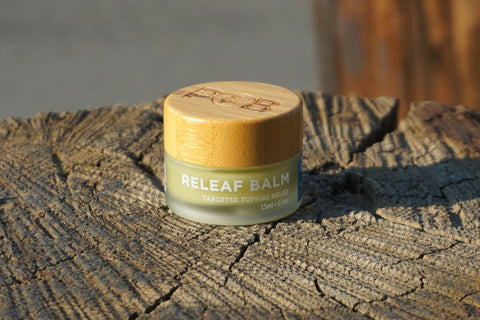In recent years, there has been a growing interest in exploring alternative methods for managing pain. One such method that has gained significant attention is the use of cannabis. Cannabis, commonly known as marijuana, has been used for centuries for its medicinal properties. With the legalization of cannabis in many parts of the world, researchers are now able to conduct more in-depth studies on its potential benefits, particularly in the realm of pain management. This blog post will delve into the role of cannabis in pain management and how it can provide natural relief for everyday aches.
Understanding Pain and its Impact
Pain is an unpleasant sensory experience that can range from mild discomfort to debilitating agony. It serves as a signal from our bodies, informing us that something is wrong. While acute pain is a normal response to injury or illness, chronic pain is an ongoing condition that can severely impact a person's quality of life. From migraines to backaches, many individuals struggle with everyday aches that make it difficult to carry out daily activities. Traditional pain relief methods, such as over-the-counter medications, can provide short-term relief, but they often come with side effects and may not be suitable for long-term use.
The Endocannabinoid System and Pain
To understand how cannabis can provide pain relief, it is important to first understand the endocannabinoid system (ECS). The ECS is a complex physiological system found in the human body. It is responsible for regulating various processes, including pain perception, mood, appetite, and sleep. The ECS consists of receptors known as CB1 and CB2, which are found throughout the body, including the brain, immune system, and peripheral nervous system.
When our bodies experience pain or inflammation, the ECS kicks into gear, releasing endocannabinoids to bind to these receptors and help restore balance. Cannabis contains compounds called cannabinoids, the most well-known being cannabidiol (CBD) and tetrahydrocannabinol (THC). These cannabinoids interact with the CB1 and CB2 receptors, mimicking the effects of the body's own endocannabinoids and potentially providing pain relief.
Cannabis for Chronic Pain Management
One of the primary reasons individuals turn to cannabis for pain management is its potential to alleviate chronic pain. Studies have shown that cannabis can help reduce pain associated with conditions such as arthritis, multiple sclerosis, fibromyalgia, and neuropathic pain. THC, the psychoactive compound in cannabis, is known for its analgesic properties and can provide relief for both inflammatory and neuropathic pain. On the other hand, CBD, a non-psychoactive compound, has been shown to have anti-inflammatory and analgesic effects, making it a promising option for those seeking natural relief.
Furthermore, cannabis may offer an alternative for individuals who have not found success with traditional pain medications or who are looking to reduce their reliance on opioids. Opioid medications are highly addictive and come with a range of side effects, including respiratory depression and the potential for overdose. Cannabis, with its potential analgesic properties, offers a potentially safer option for chronic pain management.
Choosing the Right Cannabis Product
When it comes to pain management, it is important to choose the right cannabis product. Different strains and products have varying levels of THC and CBD, each offering a unique combination of effects. High-THC strains are generally more psychoactive and may provide stronger pain relief, while CBD-dominant strains are less psychoactive and may be better for individuals who want to avoid the euphoric effects of THC.
Additionally, the method of consumption can also affect the level and duration of pain relief. Inhalation methods, such as smoking or vaporizing, offer quick relief as the cannabinoids are rapidly absorbed into the bloodstream. Edibles and oils, on the other hand, provide a slower onset of effects but tend to last longer. It is important to experiment and find the right product and method that works best for each individual's unique pain needs.
The Importance of Professional Guidance
While cannabis shows promise for pain management, it is crucial to seek professional guidance when considering its use. Consulting with a healthcare provider who is knowledgeable about medical cannabis can help individuals navigate the complexities of dosage, strains, and any potential interactions with other medications. Additionally, they can provide personalized recommendations based on the individual's specific pain condition and medical history.
Legal Considerations
Before exploring cannabis as a pain management option, it is essential to understand the legal landscape in your jurisdiction. Cannabis laws vary from country to country and even within different states or provinces. Familiarize yourself with the specific regulations and seek legal advice if needed to ensure compliance with the law.
The Future of Cannabis in Pain Management
As cannabis and its potential benefits continue to be researched, the future of cannabis in pain management looks promising. With ongoing studies and scientific advancements, we can gain a better understanding of how cannabis interacts with the body and its potential role in treating various pain conditions. However, it is important to remember that cannabis is not a one-size-fits-all solution. Each individual's experience with cannabis may vary, and it may not be suitable for everyone.
In Conclusion
Cannabis offers a natural approach to pain management, potentially providing relief for everyday aches. With its ability to interact with the body's endocannabinoid system, cannabis may offer a safe and effective alternative to traditional pain medications. However, it is important to consult with a healthcare provider and adhere to legal regulations when considering cannabis for pain management. By exploring different strains and consumption methods, individuals can find a personalized approach that brings them the natural relief they seek.



